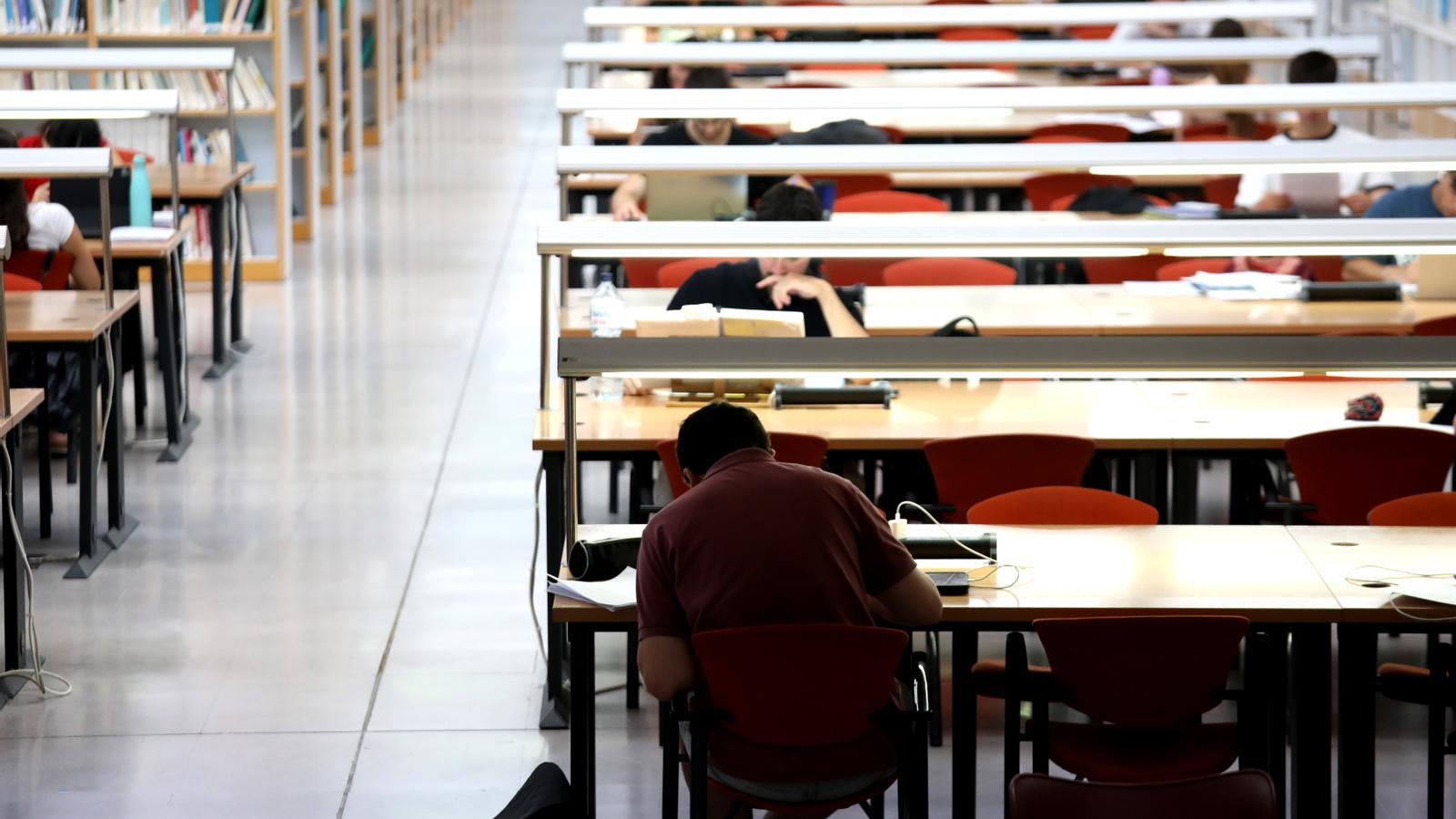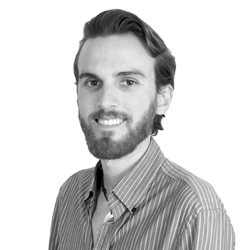For many generations, applicants for teaching positions have faced the same style of tests and syllabus. "It's clear they should be updated, but I had taken the Therapeutic Pedagogy exams several times, and it would have really upset me if they had changed the content during the process," says a professional who obtained the position two years ago. Her opinion is shared by other teachers we interviewed.
Teaching competitions with syllabi from the 90s: "In IT, they talk about floppy disks, but they don't talk about the internet."
There is no mention of AI either, and in other specialties there are references to the LOGSE, repealed 19 years ago, a situation that the Ministry of Education is aware of and must be resolved.


PalmPeople who decide to apply for the teaching exams, both in the Balearic Islands and throughout Spain, must be willing to travel back in time. The reason is simple. The syllabus for the Early Childhood stage, for example, dates back to 1993 and includes a topic that, now, in the 21st century, and at a time when gender boundaries are increasingly invisible, would be controversial: "Sexual education in the early childhood stage. Discovery and identification with the same sex. Educational tools to avoid gender discrimination." Sources from the stage consulted by ARA Baleares assure that even when these syllabuses were developed, 32 years ago, the aforementioned section was obsolete. "I've been in Early Childhood all my life, and we've never worked with children on gender roles, for no reason," asserts a professional with more than 37 years of experience.
The Early Childhood syllabus is the oldest, and the Primary syllabus is the most recent (2007). But the entire Secondary and Vocational Training curriculum is also from the last century, dating from 1993 and 1996. Some subjects have aged better, such as Mathematics, Latin, Greek, or languages, but others are completely outdated to an incredible degree. If a computer scientist decides to take the competitive examinations for this specialty, they will notice that there is no reference to the internet anywhere. Clearly, at that time, the Internet was not so widespread in society, but now, in the 21st century, virtually all businesses, homes, educational centers, teachers, and students use it in their daily lives. It is an indispensable tool.
The Computer Science syllabus also makes no mention of social networks, artificial intelligence—currently much debated due to its impact on the education sector—or robotics, wireless networks, or HTML, among others. The coordinator of the Professional Association of Teachers of the Balearic Islands, Antoni Salvà, a well-versed expert on educational reality, summarizes the situation: "It's an administrative process to filter out those capable of passing a written test on topics from the late 20th century," he says. In fact, it's possible that people who weren't even born when the topics were published are currently applying for the exams. Other specialties that have been overtaken by the passage of time are Therapeutic Pedagogy (PT) and Hearing and Language. Both refer to the LOGSE (Spanish Educational Law), an education law repealed in 2006. In any case, candidates must adapt their syllabi to the logic of the current era. If a candidate for Computer Science doesn't mention the internet in a test, or a therapeutic pedagogue refers to the LOGSE (Spanish Educational Law), the courts will surely fail them.
The organization of the syllabi for the exams depends on the Ministry of Education. Since 1993, different governments have alternated, but none have effectively achieved lasting change. An attempt was made in 2011, during José Luis Rodríguez Zapatero's second government, with the approval of new curriculum. However, when the change of government occurred, José Ignacio Wert (PP) took over the Ministry of Education and repealed it. "If I were in the opposition, I would be jumping for joy if they had reinstated my curriculum," said the minister, who criticized curriculums that, today, would also be obsolete.
In short, while teaching methodologies and methods of assessing students have changed radically in the last decade, access to the teaching profession has stagnated, with the exception of the Primary stage, in the last millennium.
A necessary, but difficult agreement
How did we get to this point? Sources close to the Ministry of Education assure that work is underway to ensure that the curriculum change, as well as the reform of the teaching function, can be implemented as soon as possible. "The document was published more than two years ago," 24 measures for the reform of the teaching functionThe first thing we're talking about is defining professional profiles, determining what the teacher of the future should be like, the skills they should have. And that's not easy, because we have to negotiate with universities, autonomous communities, unions..." he explains. He adds, "It's a crucial issue, but it's not resolved in an afternoon; it takes months, if not years, of negotiation," he says.
State Education professionals from Early Childhood and Primary Education are involved in the reform of the teaching function. One of the projects they want to implement is to modify the curricula for education degrees. They also want to review the pedagogical retraining process carried out by Secondary Education professionals. "You can be a great mathematician and, at the same time, a terrible teacher," explains the source close to the Ministry.
For its part, the agency claims to be "fully aware" of the situation and to be working with different sectors to reform the teaching profession. "The Ministry is aware of the need to modernize the syllabuses for the curriculums. Another goal is to adapt them to the competency-based approach of the LOMLOE curricula. All of this will be addressed soon," explains the Spanish government. ARA Baleares has requested to speak with the Director General of Teaching Staff of the Ministry of Education, Ismael Alonso, about the competitive examination processes and testing models. An interview was not granted.
"The current syllabuses are completely outdated and do not reflect reality at all. We cannot have teaching staff syllabuses that discuss the trends of the last century, or a computer science syllabus that talks about floppy disks, obsolete programming languages, and does not mention the internet," explains Lluís Segura, Secretary General of Public Education at the STEI (Spanish Institute of Education). Miquel Àngel Santos, spokesperson for the Ministry of Education, explained, "Educational competence has been transferred to the autonomous communities, but all regulations continue to be the responsibility of the State."
Salvà, the school coordinator, is even more emphatic. "The procedures use syllabi that contradict the LOMLOE (Spanish Organic Law of the Spanish Language) and the Royal Decrees on the Organization and Minimum Education of the stages," the diversity, the syllabus, also contradicts current regulations. "They focus on 'integration,'" he explains, and all at a time when new educational disciplines have replaced the concept of integrating students with that of including them. The nuance is important. The educational inclusion of all students is today one of the foundations of the functioning of educational centers.
A test that doesn't select the best
Beyond the syllabus, the format of the tests also requires urgent reform. The first test consists of a written presentation of a topic from the specialty. This is memorized at a time when education is increasingly less so. The second is a practical exercise in which a situation related to the specialty is posed, and the candidate must solve it. It's not until the third test that the candidate, if they make it, can orally present and defend a learning situation plan or a teaching program. "There are many people who don't pass the written topic test because they give up when they see it directly. And there are still good teachers," explains Santos.
This is confirmed by Miquel Bujosa, director of the CEIP Es Puig de Lloseta, who has been on an exam board twice. "The theoretical test is a way of spoiling people. A panel can have 80 candidates, of which 35 advance to the second test, and only 15 make it to the final one. There can be very good teachers who fall by the wayside, and bad ones who lose their positions," he asserts. "A reform is needed so that candidates have to demonstrate that they know how to apply knowledge and transmit it, not memorize it," opines Joan Crespí, spokesperson for the SIAU union. "There can't be that duality between practical work in schools and cramming for competitive exams. Because many people slack off," he adds.
In the year 2025, in a time of major pedagogical reform, of rethinking methodologies and strategies, teachers aspiring to become civil servants have as a reference the syllabuses from an era—the 1990s—when, sometimes, if a student didn't perform, they were said to be worthless. More than 25 years later, it has been discovered that some of these children had learning disorders: ADHD, Asperger's, autism, among others.
Taking the teaching exams is like taking an initial trip back in time, adapting the syllabus to the present and focusing on a profession that demands looking to the future to face the challenges of the education system, in this case in the Balearic Islands—and there are quite a few. And all this with an exam that, if you're lucky and pass the completely memorized test, offers the opportunity to demonstrate that you can be the teacher your students need. The good news is that the Ministry is working to change access to the teaching profession, which has largely been paralyzed by the approaches established in the LOGSE (Spanish acronym for "Loges de Educación Educativa"). This law transformed the state's education system, modernizing it, and is the text that has been in force for the longest time since the restoration of democracy (16). Now, it's been two decades since it was replaced by the LOE, a law that was reformed in the LOMCE (Legal Education Act) and also reformulated the current LOMLOE (Legal Education Act). The unknown, for now, is when the change in access to and definition of the teaching role will take effect, which is long overdue. But education cannot wait any longer.
